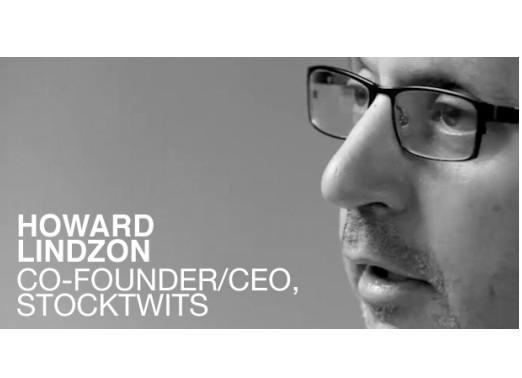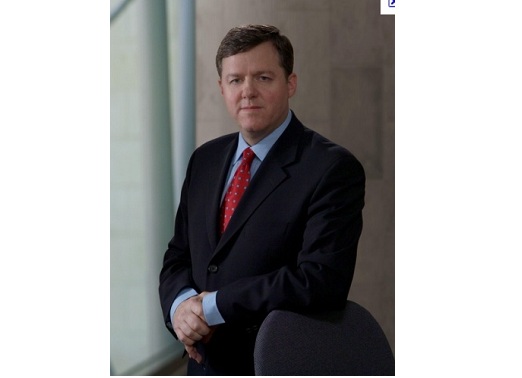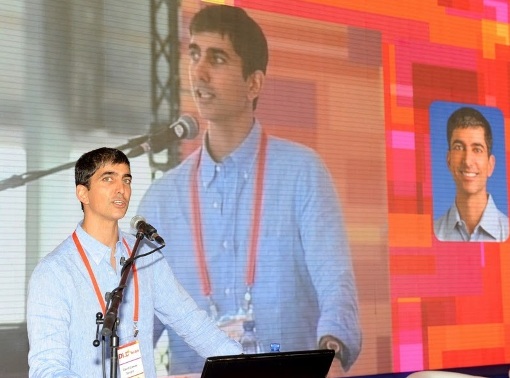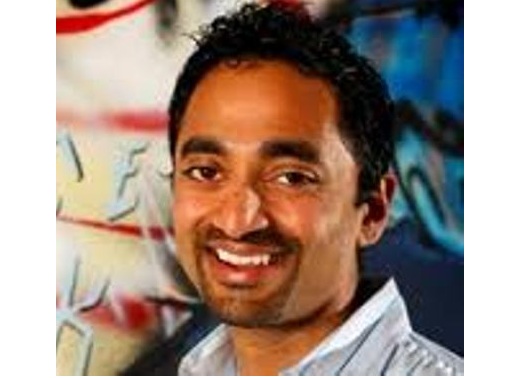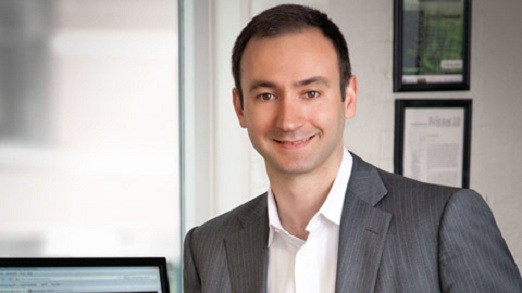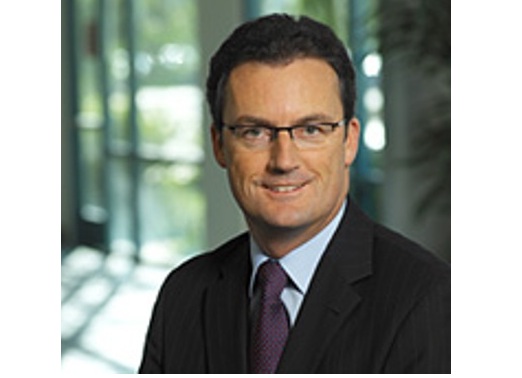-
Who better to ask about how to make Toronto the next Silicon Valley than the talented tech tycoons that once lived in this city, but have gone on to succeed internationally? You’d be surprised at the Torontonians that are now making waves in the tech industry abroad, or have returned home after a stint in the U.S. to work here. We asked 11 of these tech executives how Toronto could succeed as an ICT hub.

-
Rowan Trollope, group president and general manager of Symantec Corp.’s SMB and Symantec.Cloud divisions.
Ever since he was 16, Rowan has been involved in the computer industry, with a summer job hunting down computer viruses. This led to his being hired by the Norton Computing Company Inc. in Santa Monica, Calif. and a 20 year post with Symantec.
“As technology continues to play a vital role in our everyday lives, cities like Toronto are stepping up to the challenge and emerging as the new hub for ideas, world-class research and innovation. After all, it’s a close neighbour to an innovative Southern Ontario company that has forever changed the way we communicate and do business on mobile devices. Toronto has some of the brightest minds in the field and best schools producing world-class talent. Rather than trying to become the next Silicon Valley, I think businesses in Toronto should focus on investing in research, innovation and recruiting talent to help the tech industry evolve.”

-
Howard Lindzon, co-founder and CEO of StockTwits
StockTwits is a social network for traders and investors to share real-time ideas and information, makes no bones about missing the boat on social media hits Twitter, Zynga and Foursquare.
“I am a Canadian, but I don’t like beer. Lots of failures too. Trust me,” the Toronto-born serial entrepreneur and angel investor with tens of thousands of followers from around the world declares on his web site. StockTwits was recently named “one of the top 10 most innovative companies in the Web” by FastCompany and one of the “50 best Web sites” by Time magazine.
Howard’s advice for companies and investors seeking to make Toronto a technology powerhouse stem from the lessons he learned along the way to success:
“Take part in the conversation and follow the flow of information in order to know what’s going on. Don’t get stuck with one idea, follow trends and find out which one works for you. Invest in what you understand.”
Source: ITBusiness.ca
-
Chris O’Neill, managing director, Google Canada
Stocking shelves at Canadian Tire. That was Chris O’Neill’s first job as a kid. Okay, it was his father’s Canadian Tire franchise, but you can’t get more Canadian than that.
Chris later went on to earn a BA in economics at the University of Western Ontario. And after several other jobs became director of retail operations for Google Inc. in California. Last year, Chris moved back to Canada as head of Google Canada.
In a recent interview with the Globe and Mail, Chris said a lack of innovation and risk taking are top issues preventing Canadians from leading in the technology arena. “We need to have better financing of startups. Part of the success of Waterloo, and certainly of Silicon Valley, is mentors. People collaborate and share information, and are okay with that.”
Soure: Globe and Mail
-
Jonathan Lister, country manager Canada, LinkedIn
University of Toronto graduate Jonathan Lister came by a long route prior to becoming LinkedIn’s top man in Canada. Part of that route involved serving as general manager for AOL Canada, vice president of audience for AOL, senior vice president of operation for AOL Europe and two years as country manager for Google Canada.
Jonathan says Canada is LinkedIn’s fastest growing market. Jonathan believes small businesses are the engine of the country’s technology industry. To achieve their next level of growth businesses need high quality networks, he said in an interview with CWC Virtual Mentor: “You have to have a high quality network of people who will pass you on to your second level network, which expands your reach. Spend the time to build and nurture your relationships on LinkedIn.”
Source: CWC Virtual Mentor

-
Robert Courteau, president for the North American operations, SAP
Robert Courteau is president for the North American operations of global business management software giant SAP. Prior to joining SAP, the Concordia University graduate worked with a number of Canadian organizations including the First National Financial Corp. and U.S. companies such as Xerox Corp and EDS Corp.
For Toronto and Canada to succeed, businesses need to adopt a global outlook, he said. “We must not look inward to protect our local market. We need to look externally to find new global market. You can’t rely on lower cost of labour to be competitive.”

-
David Lawee, vice-president of corporate development, Google
David Lawee leads the search company’s acquisitions. The McGill University and University of Western Ontario alumnus was also a successful entrepreneur even before he joined Google. He is known for co-founding the gaming community Xfire which was bought by Viacom for $106 million in 2006.
One of David’s interviews with Bloomberg Businessweek may provide some hints on what direction Toronto tech firms should consider. Google has staked a claim on the mobile space with Android and continues to make a play for social media. “Our top priorities are search, advertising and mobile services. We are basically looking at the entire spectrum of the Internet.”
Source: Bloomberg

-
Lew Cirne, CEO, New Relic
Silicon Valley-based technologist and serial entrepreneur Lew Cirne is founder and CEO of New Relic, a leading SaaS application performance management firm. Cirne who was raised in Port Hope, Ont. is also best known for the classic garage startup Wily Technology. It was a one-person operation that grew to be a 300-plus-employee company which later sold to CA for $375 million.
Startups are vital to technology hubs. But startups need investors to grow. In an interview with GigaOm, Lew encouraged startups to strive towards transparency with investors and not be afraid to share the “bad news” with investors. Transparency with employees is also vital he said. “You are building a culture of trust and respect. And that in itself is transformative for a startup.”
Source: GigaOm

-
Chamath Palihapitiya, founder, Social+Capital Partnership
Chamath Palihapitiya was vice president of Facebook before he left the social networking site to found The Social+Capital Partnership, a $400 million venture fund, which focuses on technology, healthcare, education and financial sectors. The University of Waterloo alumnus was born in Sri Lanka and grew up in Canada, favours jeans and flip-flops over a suit and dress shoes, and says he is trying to appear as un-VC as possible. He believes current investment models are too formulaic and focused on short term gain that robs the entrepreneur of control over the business.
In a talk on Quora, he laid out some solutions to help the Toronto tech scene flourish: Embolden kids at killer schools like Waterloo to take bigger risks and starting companies right out of school. Offer deeper pools of angle and early stage money for at fair terms that mirror those of Silicon Valley to fund these kids’ ambitions. Introduce more competition at Series B and beyond by removing regulations that slow down or prevent US and International sources of capital.
Source: Quora

-
Michael Serbinis, CEO, Kobo Inc.
Mike Serbinis knows the value of Chamath Palihapitiya’s advice. According to the University of Toronto and Queen’s University Graduate, his erstwhile upstart e-reader company owes much of its growth to foreign funding. The Canadian company is fast earning global acclaim for its low-cost e-reader. The recently released Kobo Vox, sports a coloured touch screen with WiFi capabilities that enables users to connect to the Web to do-email, social networking, download songs all for just $199.
“We started out with a classic David and Goliath battle. We set out to be better than the Kindle,” he said. “Now we have a Goliath at our back.” Kobo was recently acquired for $315 million by Rakuten, Japan’s largest Web retailer.
For Toronto’s tech environment to blossom, its startups need seed money and business development funding. “Financial assistance needs to be there to help the companies grow to the next level. In our case we were lucky. We had sources of funding from off shore sources.”

-
Rob Lloyd, executive VP, worldwide operations, Cisco
Rob says his Canadian background is vital in handling the global scope of his job. “Canadians are often perceived as good collaborators, and if you look at the basic requirement today for global business, collaboration underlies everything,” he said in a recent interview with the Globe and Mail.
He also said it is important for companies to adjust to market transitions. “Nortel, I think didn’t understand the importance of adjusting to market transition. The market was moving to IP and I think the company was just too much embedded in the ways its technology was successful, and they missed the transition.”
Source: Globe and Mail

-
Robert Young, founder, Lulu
Robert Young made a ton of money with his software company, Red Hat, which dominates the Linux market. The Ancaster, Ont. native who attended Trinity College, in Port Hope, Ont and Victoria College at the U of T, left Red Hat in 1999 and started Lulu, a self-publishing Web site that is one of the world’s largest providers of print-on-demand books.
To a large extent success comes from recognizing opportunities and the ability to deliver consistent quality of product, said Rob in an interview with ITBusiness.ca For instance, Red Hat grew out of his attempts to understand how Heinz could be a leader in selling ketchup. “It’s as close to free software as you can get. You can mix it up with water and not break any copyright. What we realized is that Heinz delivered consistent quality of product – even if you couldn’t get it out of the bottle.”

❮ ❯






